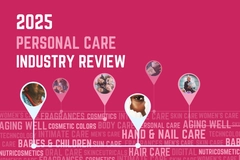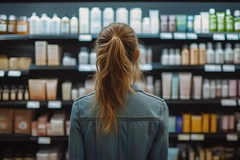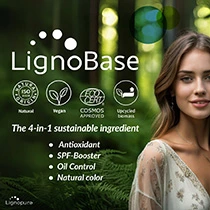UK licensing framework for cosmetic procedures will slash unregulated methods
.jpg)
01 Mar 2022 --- The UK government has stated that non-surgical cosmetic procedures such as botox and fillers will be subject to a licensing framework. The Health and Care Bill will be amended to allow the health secretary the authority to issue a license for non-surgical cosmetic procedures like botox and fillers.
An amendment to the Health and Care Bill, which will be tabled today, would give the Secretary of State for Health and Social Care the power to introduce a botox and filler licensing regime. The scope and details of this licensing regime will be determined by extensive engagement, including public consultation.
Individuals performing non-surgical cosmetic operations will be required to fulfill consistent standards and hygiene and safety criteria for the premises under the licensing program.
“The spread of images on social media has contributed to an increase in demand for cosmetic procedures such as botox and fillers. While these can be administered safely, we are seeing an unacceptable rise in people being left physically and mentally scarred from poorly performed procedures,” says Maria Caulfield, UK minister for Patient Safety.
“I am committed to protecting patient safety by making it an offense for someone to perform these cosmetic procedures without a license,” says Sajid Javid, UK secretary of Health and Social Care.
Implementing the licensing scheme
The licensing framework is the government’s latest effort to protect those who seek non-surgical cosmetic treatments.
“Today’s amendment is the next step on the road to effective regulation of non-surgical cosmetic procedures in England.” The new licensing scheme will concentrate on botox and filler cosmetic procedures as these can cause harm if performed incorrectly.
The new licensing scheme will concentrate on botox and filler cosmetic procedures as these can cause harm if performed incorrectly.
This amendment is in addition to continuing work with the Medicines and Healthcare Products Regulatory Agency about the possibility of bringing non-medical devices, such as dermal fillers, under medical device laws.
“We’re doing all we can to protect patients from potential harm, but I urge anyone considering a cosmetic procedure to take the time to think about the impact on both their physical and mental health and ensure they are using a reputable, safe and qualified practitioner,” adds Javid.
Although most of the cosmetics industry follows best practices when it comes to patient safety, this step will ensure consistency and protect individuals from those who do not have licenses, including the potentially harmful physical and mental effects of poorly performed cosmetic procedures.
The government is now reviewing responses to a public consultation that lasted until November 25, 2021, and will issue a formal response as soon as possible.
Cosmetic surgery bans and DIY disfigurements
This move from the UK government follows England’s restriction on cosmetic operations on minors under 18.
Previously, the UK government planned to ban advertisements for cosmetic surgery clinics aimed at teenagers from May of this year. This move intends to prevent companies – through advertisements – from encouraging adolescents prone to body dysmorphia to get nose jobs, breast enlargements and liposuction.
“While most of those in the aesthetics industry follow good practice when it comes to patient safety, far too many people have been left emotionally and physically scarred after botched cosmetic procedures,” says Javid.
Due to the COVID-19 pandemic, an increasing number of people turned to dubious “Do-It-Yourself” (DIY) tutorial videos on the internet to learn how to apply fillers and botox mixes. This resulted in disfigurement in some cases, a study found.
By Nicole Kerr












